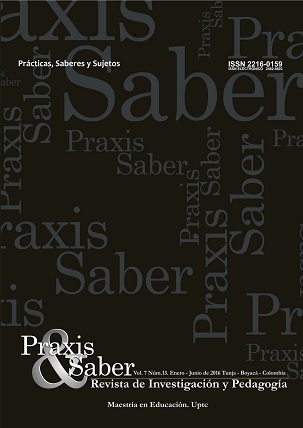Teacher evaluation system, institutions of technology higher education: quality guidelines

Abstract
Due to the globalization of education, it has become prevalent to strengthen the quality systems to ensure that educational actors in higher education institutions are the best. In this context teachers are given a main role since they are cornerstones in educational processes. Currently, teacher quality is assessed through an assessment or evaluation system. Almost every university evaluates its teachers, but there is no legal regulation on how to do it, in most institutions there is a professional in charge of designing and applying assessment instruments according to the authors he/she prefers. In most universities, on the one hand, it is used a traditional questionnaire aiming to collect data about dimensions associated with teaching, on the other hand, there is another option in which assessment models include self-evaluation, as in some cases in Chile. That’s why one of the concerns of this research is to propose guidelines for a more qualitative and formative assessment not exclusively following political parameters –based on administrative decisions–, but following emerging proposals with a deeper analysis. Nowadays the main actors in teacher evaluation are teachers, students and administrative staff, every six months these actors are evaluated by using an assessment tool that they usually do not know. The research investigates the perception actors in teacher evaluation have regarding its objectives, methods and stages, so they put forward ideas on how to restructure the current institutional assessment and propose improvements aiming at both the quantitative aspect and the qualitative analysis of performances and skills.Keywords
teacher evaluation, technology assessment, educational quality guidelines.
References
- Alfonso, I. (1994). Técnicas de Investigación Bibliográfica. Caracas: Contexto Ediciones.
- ANA, R. P. (1998). El Conocimiento de los Profesores. Sevilla, Espa-a: Diada Editores.
- Tena-Suck, A. (1995). Manual de investigación documental, elaboración de tesinas. México: Plaza y Valdés.
- Bernal, C. (2010). Metodología de la investigación. Bogotá: PEARSON.
- BISQUERA, R. (1988). Métodos de Investigación Educativa. Barcelona, Espa-a: Ediciones CEAC.
- BURBULES, N. (2011) Los celulares también son una herramienta de aprendizaje. Recuperado el 5 de mayo de 2015 de http://www.perfil.com/contenidos/2007/05/09/noticia_0049.html
- Campo-R., M. R. (1999). Formación integral. Modalidad de educación posibilitadora de lo humano. Bogotá: Ediciones Universidad Javeriana.
- CASTRO, L. (2011). Recuperado el 5 de mayo de 2015 de http://www.palermo.edu/cienciassociales/publicaciones/pdf/Psico6/6Psico%2008.pdf Colombia Aprende. (2012). Avances y desafíos de la educación en Colombia. Recuperado de http://www.colombiaaprende.edu.co/html/home/1592/w3-channel.html
- Dewey, J. (1897). 'My Pedagogic Creed'. School Journal [(54) 77-80].
- Díaz-Barriga, A. (1998). 'Problemas y retos del campo de la evaluación educativa'. Perfiles Educativos [(37)].
- DÍAZ DE R., V. (2005). Manual de trabajo de campo en la encuesta. Madrid: CIS.
- FONSECA, E. & MÚÑIZ, J. (2008). 'Construcción de Instrumentos de Medida para la evaluación universitaria'. Revista de investigación en educación [(5) 13-25].
- FLORENCIA, C. (1999). La evaluación educacional. Buenos Aires: Aique Grupo Editor.
- González, F. (2012). El Medio Urbano como ámbito de conocimiento escolar. Análisis y propuestas a partir de un estudio de concepciones de alumnado de Bogotá. Tesis Doctoral. Universidad de Sevilla, Departamento de Didáctica de las Ciencias.
- Hirtt, N. (2003). Los nuevos amos de la escuela. Madrid: Minor Network.
- Hirtt, N. (2003). Los nuevos amos de la escuela. Madrid: Minor Network.
- La Francesco, G. (2003). La investigación en educación y pedagogía: fundamentos y técnicas. Bogotá: Géminis.
- LEYVA -BARAJAS, Y. E. (2011). 'Una rese-a sobre la validez de constructo de pruebas referidas a criterio de perfiles educativos'. Perfiles educativos [XXXIII (131) 131-154].
- MACD (2001). Metodología cuantitativa estrategias y técnicas de investigación social. Madrid: Síntesis.
- Marín Gallego, J. D. (2010). Documento guía Epistemología 1 semestre [Maestría en Educación]. Bogotá: Universidad Militar Nueva Granada.
- Mayo, E. (2003). The Social Problems of an Industrial Civilization. Londres: Routledge.
- Méndez, M. A. (2008). Evaluar para conocer, examinar para excluir. Madrid: Morata.
Downloads
Download data is not yet available.